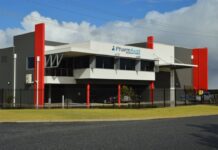Acting Premier and Treasurer Curtis has asked the Queensland Productivity Commission to conduct an inquiry that will give Central Queensland’s agricultural sector a say on the potential for expanding the state’s food production and processing sector while creating new jobs.
![Image courtesy of [Marcus-] / FreeDigitalPhotos.net](http://www.australianmanufacturing.com.au/wp-content/uploads/2013/07/food-300x199.jpg)
“As Treasurer I have announced an inquiry into the state’s manufacturing sector by the Queensland Productivity Commission. The inquiry will look at ways to build on Queensland’s traditional manufacturing base, including our agricultural sector,” Mr Pitt said.
“The inquiry is expected to be completed by August next year. It will focus on opportunities to maximise advantages, address weaknesses and take advantage of emerging domestic and international opportunities, including a focus on employment and exports.”
He said the move reflected the Government’s long-term policy approach for the economic development of Queensland in the years to come.
“There is a lot of talk about the ‘new economy’ and I know that some workers have concerns about what that means for the so called ‘old economy’. Right now they might think the world is moving on without them. But to them I say that the Palaszczuk Government understands their concerns,” the Treasurer added.
“That is why we are focussing our efforts to create new jobs on our traditional industry sectors, not just those sectors that have emerged from the digital age.”
Mr Pitt said the inquiry might help identify untapped opportunities that exist in agriculture and food production, two of the state’s strongest traditional sectors.
According to him, food manufacturing was one sector where new opportunities were likely to open up to meet the rising demands from the growing middle classes in Asian markets.
“As a nation and as a state we are well positioned to take advantage of demands for new products,” Mr Pitt continued.
“Asian customers already have a taste for our unique, clean, and safe food products including beef and other products from Central Queensland producers. The rising middle classes in Asia are looking for products that are different to ones they can obtain in their own countries but which are also reliable and affordable.”
He said the inquiry might inspire bright ideas for new products or processes in food manufacturing that have not been considered yet, but which may meet with strong demand from Asian and other export markets.
“The Productivity Commission’s inquiry will help identify possibilities for tapping ideas that could lead to new food-manufacturing products and industries with new jobs based on new export and domestic markets,” the Treasurer concluded.
Manufacturing has contributed $20.3 billion to the Queensland economy in 2014–15 and accounted for $15.9 billion in international exports.
The sector directly employed around 170,000 people in the state in the December quarter 2015.




















